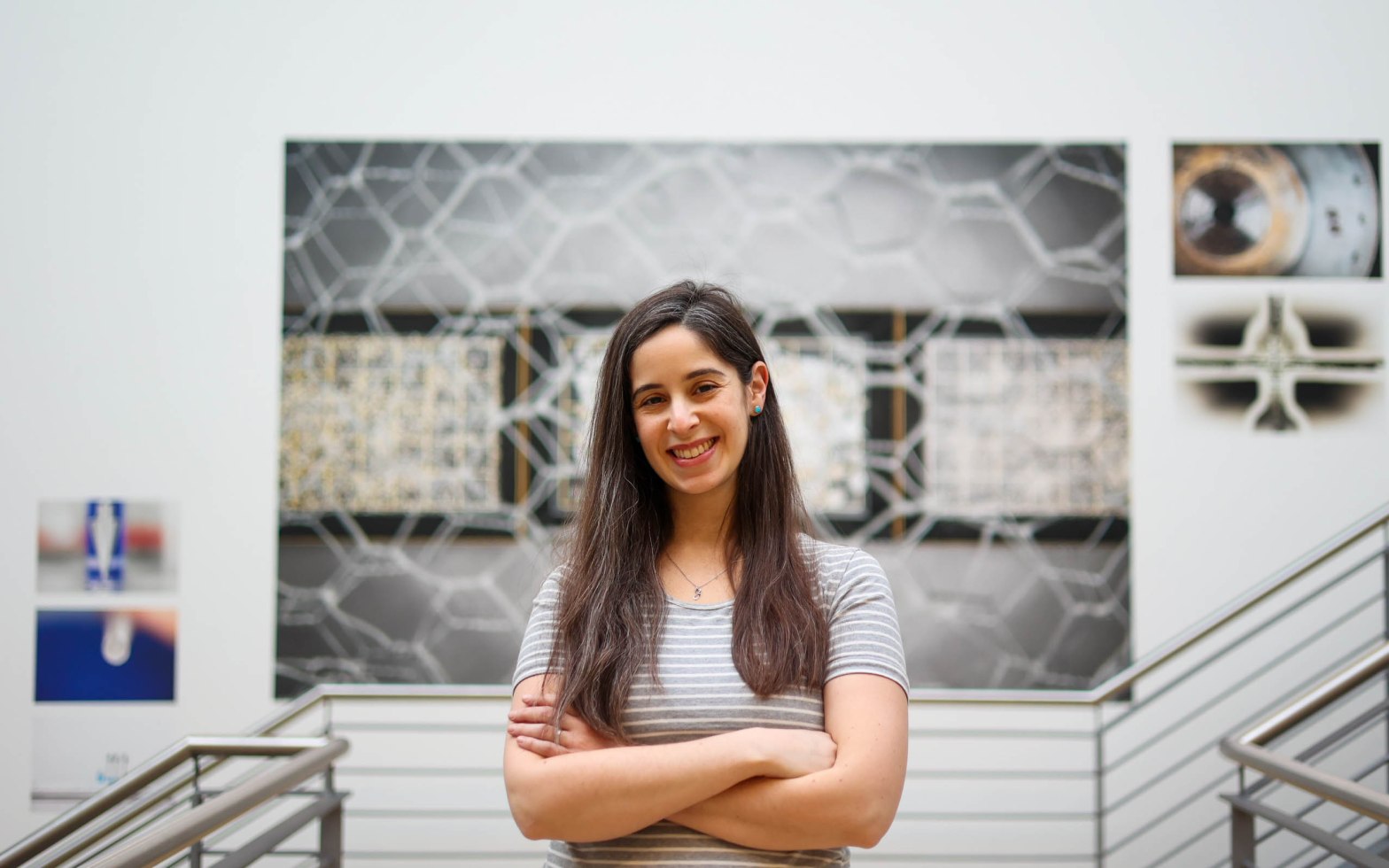Logan Brenner is a paleoclimatologist interested in reconstructing past oceanic conditions using the geochemistry of stony corals. After receiving her B.A. from Skidmore College, she earned her Ph.D. in Earth and Environmental Science from Columbia University and the Lamont-Doherty Earth Observatory.
Since 2019, Brenner has been a faculty member at Barnard College in the Department of Environmental Science. This is her first time participating in an ECORD Mission-Specific Platform expedition within IODP.
Can you tell us a little bit about how you got involved with this expedition?
I worked with the Great Barrier Reef corals from Expedition 325 while I was in graduate school. My advisor, Brad Linsley, was part of that expedition, and that’s how I met Jody Webster, the Co-Chief Scientist of IODP Expedition 389. I also exchanged emails with Thomas Felis and several of the people who are here now were co-authors on my paper. I didn’t know them personally at the time, but I knew their names and their work.
Brad and Jody told me about this expedition. When the call for science party members opened, I applied for a position. I put together a short proposal indicating how I could contribute and what my role would be. I really wanted to get involved with IODP and participate in their international, collaborative approach to research. It’s a great way to meet different people who do similar (yet distinct) things. It has been an energizing and exciting opportunity.

How do the goals of Expedition 389 intersect or overlap with your research interests?
A big part of my research agenda is coral-based paleoclimate. I study the geochemical composition of corals (either modern or fossil) to reconstruct the environment they were growing in. Whether you’re working with modern or fossilized corals, you can use similar approaches and methods.
I’m an early career scientist so the collaboration and social aspect is really important to me. Getting outside of my home institution and seeing what other people are doing and learning from them – that’s just as important as the scientific goals. It’s also fun to do something different from teaching or working in the lab.
In addition to conducting research, you teach environmental science and serve as an advisor and research mentor to undergraduate students. What do you enjoy most about teaching and mentoring?
The type of research I do is important, but it doesn’t always feel very applied – I’m not coming up with a new application or critical piece of technology. Teaching feels like the applied aspect of my research – it’s how I feel like I can more clearly make a difference. I help undergraduate students discover what they enjoy doing. I’m passionate about the content (everyone needs to understand the planet we inhabit) but I also love teaching people how to think critically and introducing them to different opportunities. It takes me out of the lab, makes me feel more connected to people, and makes my research feel more connected as well.
What advice would you give to a young scientist interested in pursuing a career path similar to yours?
Pursue opportunities outside of the classroom, and don’t narrow down your interests too quickly. I encourage people to try out new, immersive experiences – whether it’s a field course, field camp, a course intensive, or an internship – do something that is focused and hands-on. Seek out as much variety as possible. Science often involves answering one specific question, but how do you know that’s what you want to dedicate your career to?
Don’t just aim for a specific job title. Consider the elements of a particular job that bring you joy or fulfilment. If you say you want to be a researcher, think about what aspects of research make you happy. Jobs come and go, but if you recognize the fundamentals that excite you then you’ll have a more rewarding career.
Academic career paths include all kinds of challenges. How have you faced and overcome some of those challenges?
We all have our moments of imposter syndrome, and finding people that you trust is critical. I have a strong network and solid support system, including being part of a group of female graduate students. Value your network and support system.
Barnard is an all-women’s college and there is a special energy there. Being a woman in science is infused in what we’re doing all the time. We’re all bonded in a way, right off the bat, and I think that makes us feel more open and willing to try new things.
For young scientists, especially young women, I would say this: Speak up. Get involved. Get outside of your comfort zone.

